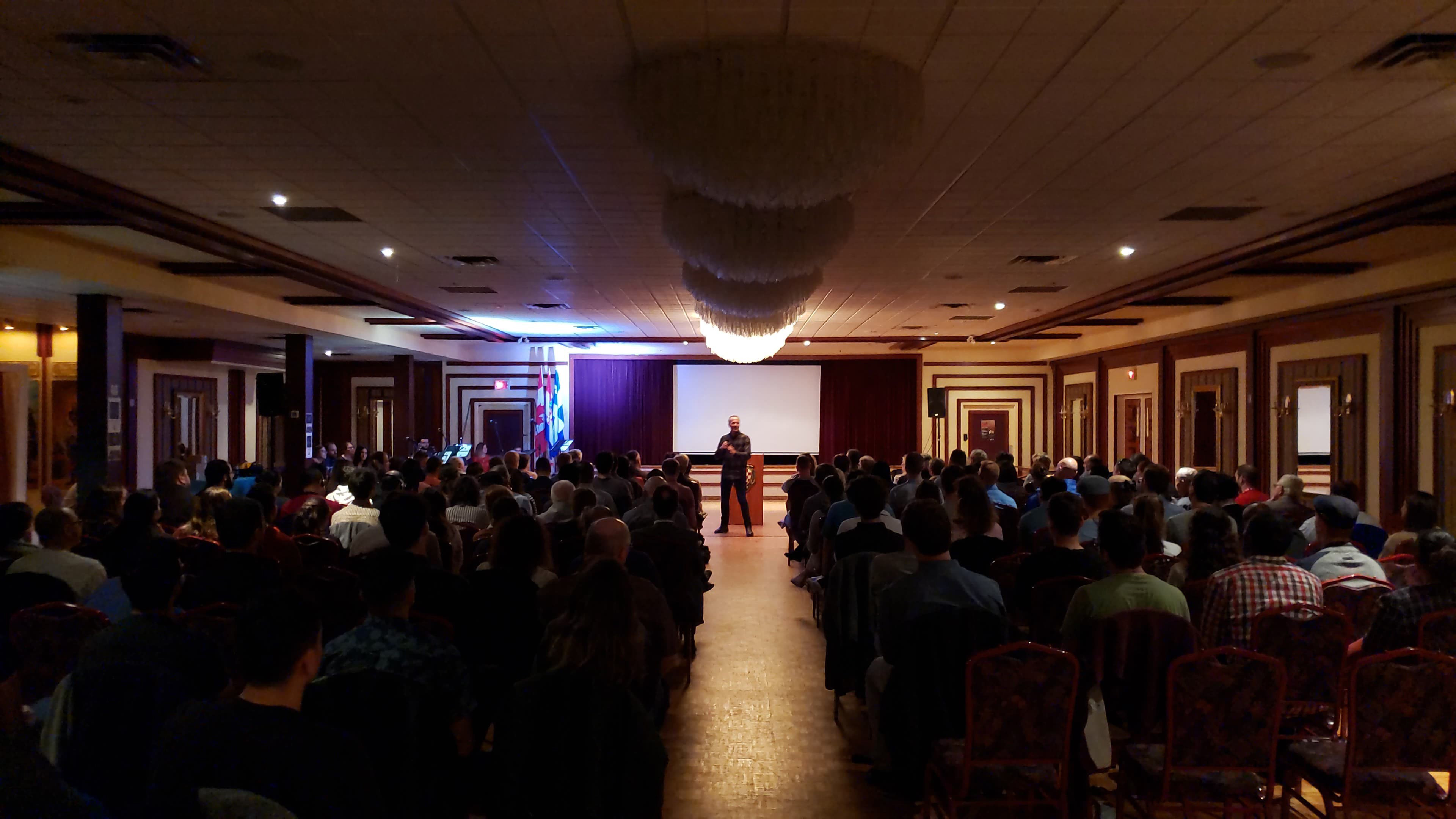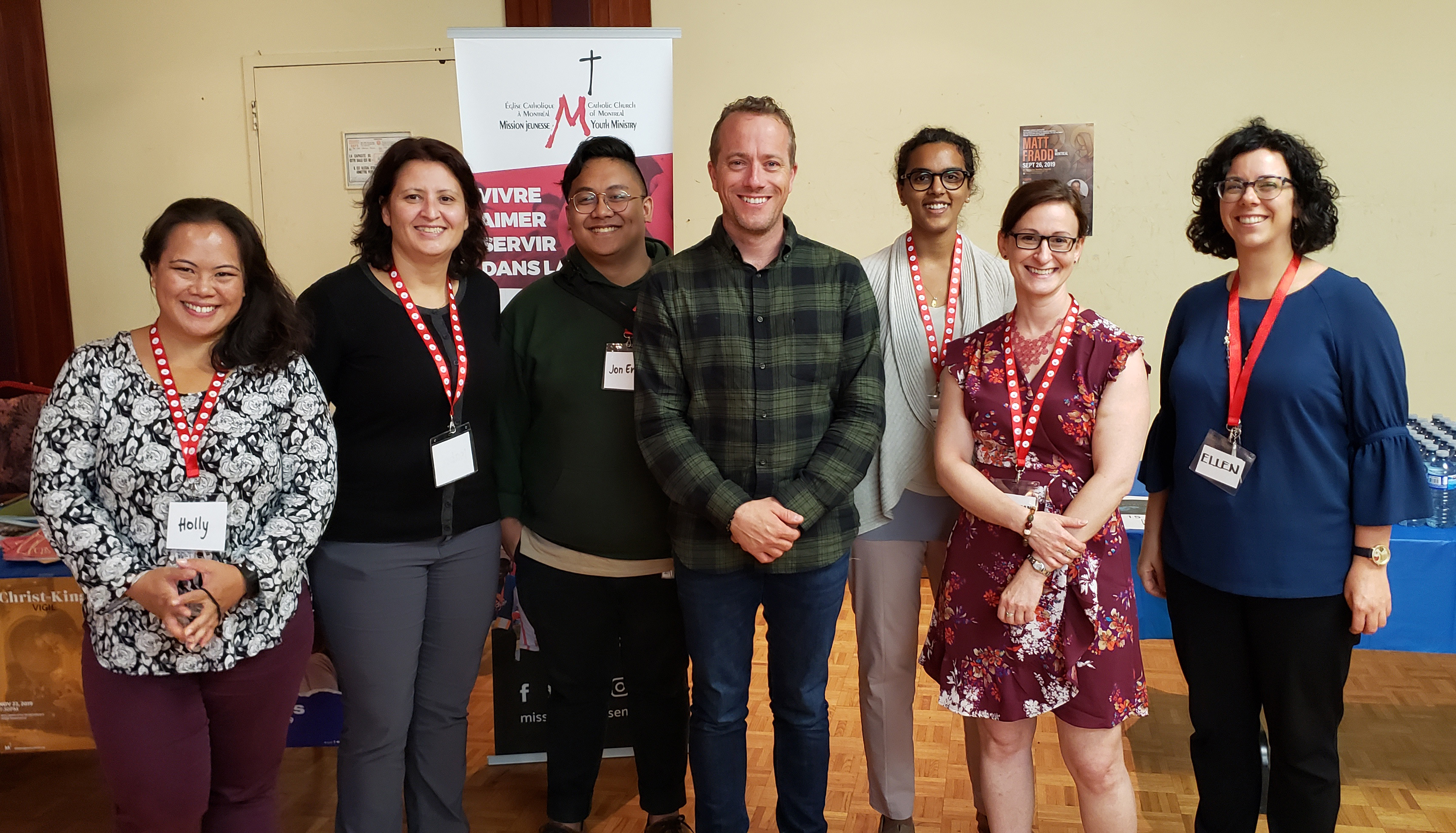Matt Fradd in Montreal

Montreal
About 200 people attended Matt Fradd’s conference on PARENTING THE INTERNET GENERATION and PORN: SEVEN MYTHS EXPOSED at St. Nicholas Tavelic Church, on Thursday evening, Sept. 26.
Among the attendees in the audience were mostly youth, but also several parents and religious. Fradd combined scientific research, statistics, humour, a charming Australian accent and his personal testimony with pornography. During the first part of the conference, organized by the Croatian Catholic Association, with Youth Mission Montreal and the Diocesan Centre for Marriage, Life and Family, and the Roman Catholic Archdiocese of Montreal, Fradd laid out seven myths that the porn industry does not want the world to know. He wanted to dispel falsehoods on the following:
We need porn
“Porn and lust are not the same thing as sex, sexual desire or nudity,” Fradd said. Referring to Bible verses from his Catholic background, Fradd pointed out that God calls us to be fruitful and multiply, and that sex and sexual desire are good. Porn, however, is not necessary, and it dehumanizes. He said that we do not see people in porn, we watch them. “They seem to get the most attention but are actually the most ignored,” Fradd said of pornography actresses.
Porn is adult entertainment
“Porn is not adult-like,” explained Fradd. In high school, he had a friend who would never go to the strip club with the rest of the group.
“I just don’t think it’s manly to have to pay a woman to pretend to like you,” Fradd added, quoting his friend.
Pornography prevents sexual repression
“There’s an old stereotype that if you’re against porn, you’re against sex,” said Fradd, attacking the myth that pornography prevents sexual repression. “There’s a third option—chastity—that virtue which enables you and me to love in accord with our dignity.” Fradd said porn induces erectile dysfunction in some men.
Pornography isn’t addictive
Following results obtained from 44 neurological studies, all concluded that pornography is addictive, despite prior beliefs that only substances taken into the body could be addictive; behaviours too can be. Dopamine is a key factor in addiction, and when pornography produces a dopamine boost in the body, that pleasure is hard to match without it. To experience that same dopamine boost continually, people may eventually feel the need to turn to harder porn. “Without dopamine, sex would be as exciting as celery,” Fradd remarked.
It’s impossible to stop
Despite the addictive properties of porn, it is possible to quit. It is a gradual process that may require tools and a support system, which he has helped to offer. A major difference with Fradd’s approach to combat porn is his enthusiasm. He uses many tactics, but the most important is having an open dialogue without fear. Fradd believes conversing with peers and tailored talks with children are the blueprint to overcoming the myths of pornography.
In the second part of his talk, Fradd spoke about the effects of excessive internet use and the wide availability of pornography on the internet.
“Things have changed dramatically since we were young,” Fradd said, to nods of the audience. “Instead of seeing pictures and reading articles in magazines and books, children can now access hard-core pornography in the home on the internet.”
How young is too young to start talking to children about sex and pornography? Matt recalled that his son, at age six, asked him what pornography brings. His son had undoubtedly overheard that his father’s ministry involved educating people about porn. Before replying, Matt thought about it for a few moments, then told his son, “Pornography is people showing body parts that their bathing suits should cover.” He suggested that parents should sit down with their kids and let them know that they are aware that pornography is available everywhere, and that they are comfortable having discussions about it.
“It’s important to let kids know that technology is amoral, not good nor evil,” he added, “but, it’s how we use technology that is important,” suggesting that parents have conversations with their children to answer questions and to talk about important topics such as selfies, social media, pornography. “It’s never too early to start the conversation,” he said, “Communicate with your children. Train them to have responsible attitudes about love and intimacy.”
Matt also recommended the use of internet accountability software such as Covenant Eyes, which monitors and filters computers, hand-held devices and phones. Covenant Eyes can be found at www.covenanteyes.com.

Comment
0 Comment
Add new comment